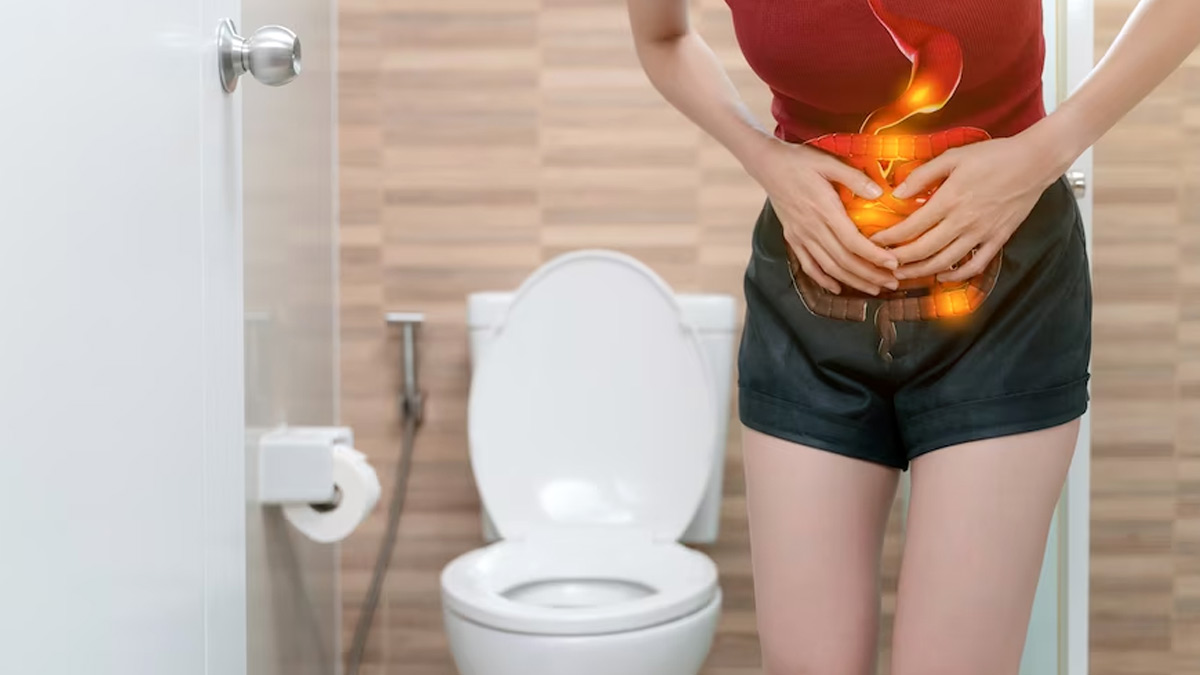
Have you heard about a condition that leads to inflammation of the small intestine? In medical terms this illness is called enteritis. This can be caused by a variety of reasons, including viral, bacterial, or parasite infections, certain drugs, radiation therapy, and disorders like crohn's disease and celiac disease. According to the National Cancer Institute, radiation therapy may lead to radiation enteritis. Radiation kills not only cancer cells but also healthy cells, including those in the mouth, stomach, and colon. Symptoms, prevention, and therapy differ according to the cause.
Table of Content:-

Dehydration is a potential reason behind enteritis. It can also cause kidney and urinary issues, as well as heart problems. It is especially dangerous for infants and young children, as well as senior persons and people suffering from chronic conditions.
Also read: If You Have Gastric Issues Then Lemon Water Is Not For You, Expert Shares Why
Symptoms Of Enteritis
According to Dr Rajiv Chaudhary, MBBS, MD, VMMC, New Delhi, symptoms of enteritis can range from mild to severe and may include:
- Diarrhoea
- Abdominal pain or cramps
- Fever
- Bloating and gas
- Nausea and vomiting
- Loss of appetite
- Blood in the stool (in more severe cases)
- Signs of dehydration, such as dry mouth, thirst, reduced urination, and dizziness

Prevention Of Enteritis
Preventive measures depend on the specific cause of enteritis but generally include:
- Regular handwashing with soap and water, especially after using the bathroom, and before preparing or eating food, can prevent the spread of infections.
- Properly washing, preparing, and storing food can reduce the risk of foodborne illnesses. Cooking meat thoroughly and avoiding cross-contamination are key steps.
- Drinking and using safe water can prevent enteritis caused by waterborne pathogens. Be cautious of water sources when travelling to areas with poor sanitation.
- Some causes of viral enteritis, such as rotavirus, can be prevented through vaccination.
Treatment Of Enteritis
“Viral infections usually resolve on their own, but antiviral medications might be necessary in severe cases. Hydration is important. During recovery, a bland diet that's easy on the stomach, such as the BRAT diet that is bananas, rice, applesauce, toast, can help,” said Dr Chaudhary.
If you are not drinking enough fluids, your doctor may offer electrolyte solutions to help you rehydrate. These solutions consist mostly of water and the important electrolytes sodium and potassium. In severe situations, IV fluids, medicines, or hospitalisation may be required.
Gradually reintroducing normal foods as symptoms improve is recommended. Oral rehydration solutions (ORS) or intravenous fluids may be needed to prevent dehydration, especially in severe cases or if the patient is very young, elderly, or has another health condition.
Anti-inflammatory medications may be used for certain types of enteritis, like Crohn's disease. Antidiarrheal medications should be used cautiously and only under a doctor's advice, as they can sometimes worsen the condition. For certain conditions, like Crohn's disease or celiac disease, avoiding dietary irritants or gluten is important.
Also read: Are Gastric Issues Troubling You? Follow These Ayurvedic Tips
Chronic enteritis and disorders such as Crohn's disease require continual medical management and monitoring in order to control symptoms and avoid consequences. If you suspect you have enteritis, and the symptoms last longer than 2 days you should see a doctor to get a clear diagnosis and treatment plan, especially if your symptoms are severe or persistent.
Also watch this video
How we keep this article up to date:
We work with experts and keep a close eye on the latest in health and wellness. Whenever there is a new research or helpful information, we update our articles with accurate and useful advice.
Current Version